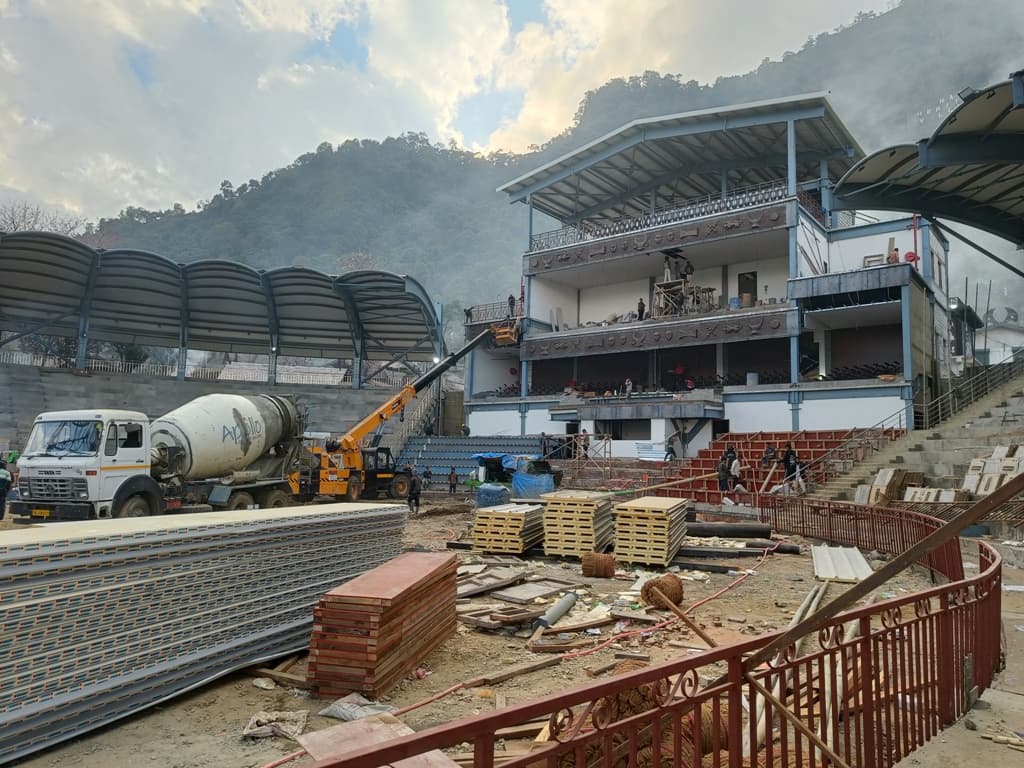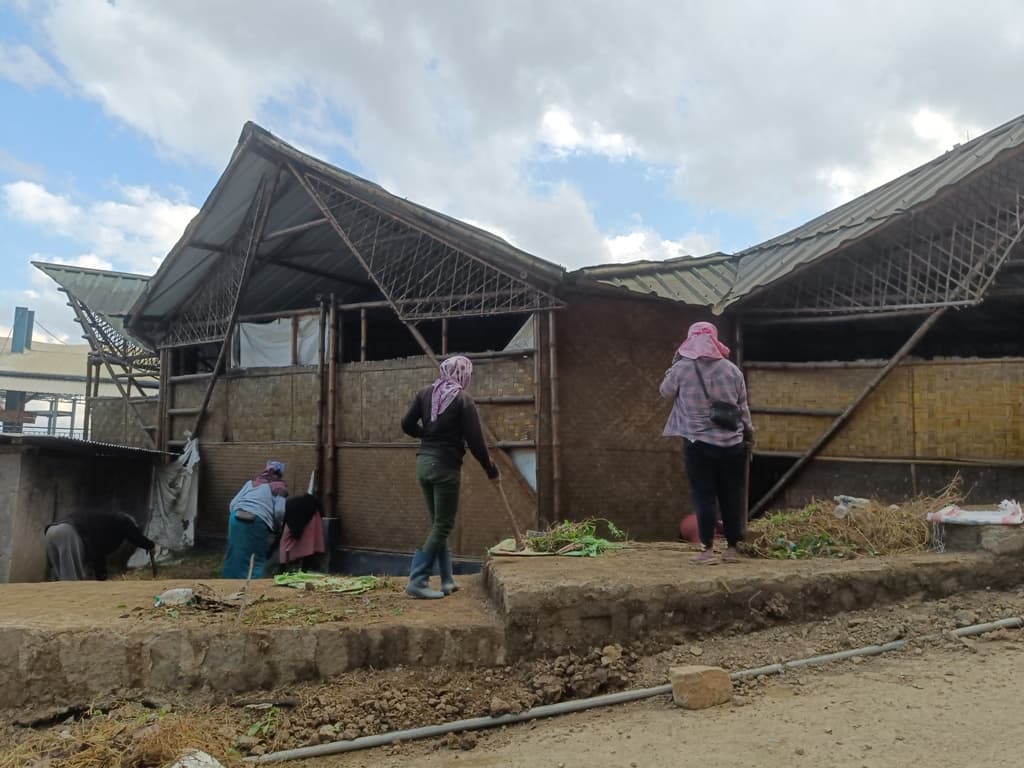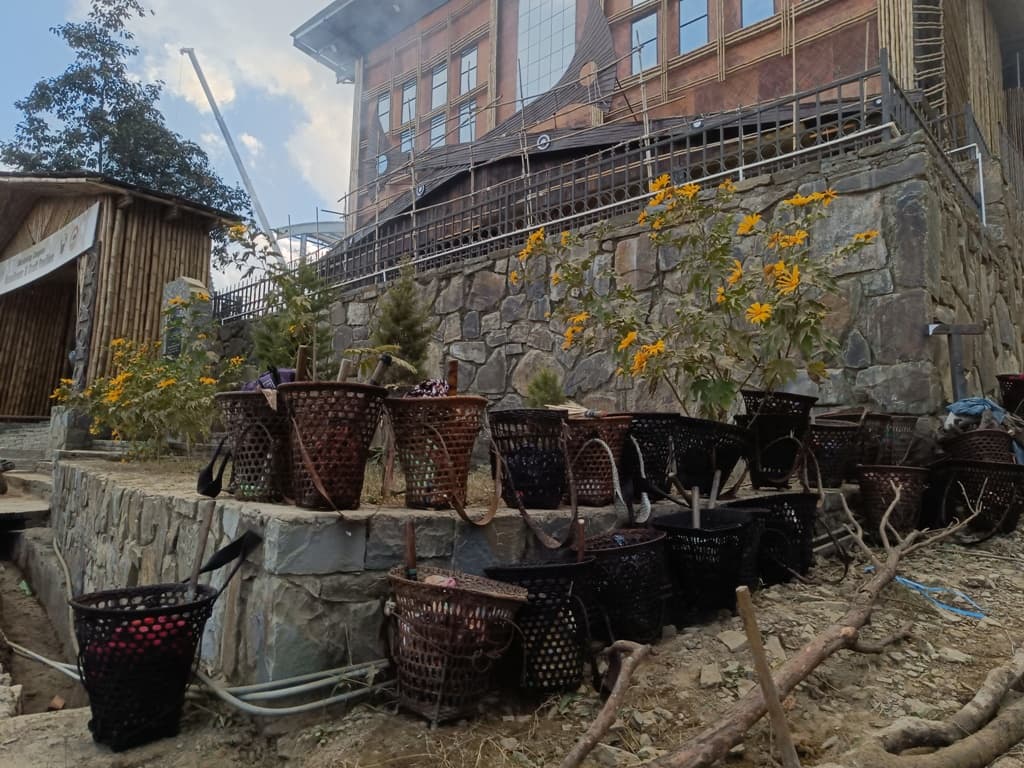SUNDAY, NOVEMBER 23, 2025
- Home
- Hornbill Festival 2025: Food prices capped, arena expanded as preparations intensify
Hornbill Festival 2025: Food prices capped, arena expanded as preparations intensify
The Tourism department has capped food prices and expanded the arena to 7,000 seats as preparations intensify for the Hornbill Festival 2025 at Kisama.
Share

DIMAPUR — Ahead of the 26th Hornbill Festival at Kisama, the department of Tourism has announced a series of changes aimed at improving the visitor experience, including a decision to regulate food pricing in all Morungs and private stalls.
In an exclusive interview with Eastern Mirror, Director of Tourism, Viyielo Doulo, said that concerns over high food rates during past editions had been taken into account, and that the department, in consultation with tribal Hohos, has agreed to cap food prices.
He said that during the coordination meeting this year, it was decided that “the food rate per plate should not cross beyond INR 350,” adding that the same limit will apply “in all the Morungs as well as private stalls.” Doulo expressed gratitude to the Hohos for agreeing to the decision.
Arena capacity doubled to 7,000 seats
Doulo said preparations at Kisama are “in full swing,” with construction work expected to be completed by November 28. This year’s festival arena will see a major overhaul, including an increase in gallery seating from 3,500 to 7,000, an expanded VIP gallery, and an upgraded performance stage designed to meet national and international standards.
Also read: Countdown to Hornbill Festival 2025 begins: What we know so far about this year’s celebration
He added that improved green rooms and new artist facilities would also be ready by November 28. “We are behind schedule, but everything will be ready for the show,” he assured.
A total of 18 cultural troupes from across Nagaland will perform at Kisama, alongside cultural groups from other Northeast states. The lineup is also expected to feature international artistes under the Task Force for Music and Arts (TaFMA) calendar, though Doulo emphasised that promoting local talent remains the primary focus. “There will be many surprises,” he said.
This year’s festival calendar lists 62 events in Kohima alone, while Hornbill-linked events will also take place in Mon, Mokokchung, Wokha, Zunheboto, Phek, Dimapur and Chümoukedima. Mon district, he noted, is hosting an expanded programme.
The director informed that tourist police personnel will be stationed across Kohima and Dimapur—where the highest tourist movement is expected—for safety and crowd management. These arrangements are being made in coordination with the Home department.
Joint Director Toka E Tuccumi said the department will continue its partnership with Birds and Bees as the festival’s health and hygiene partner. Nestlé will also collaborate with street vendors to help maintain hygiene standards, he added.

New VVIP passage and accessibility upgrades
Doulo shared that a newly constructed tunnel will facilitate entry and exit for VVIPs for “safety and convenience.” Tuccumi added that the passage will also be used by artists, participants, and others involved in the programme.
Additionally, ramps and accessible pathways have been constructed in all Morungs to ensure barrier-free access for persons with disabilities (PwDs). Toilet facilities have also been increased.
When asked about the Protected Area Permit (PAP) requirement for foreign tourists, Doulo remarked that it “might affect” tourism as visitors face multiple hurdles to obtain clearances. However, he said the department has been informed that the state government, led by Chief Minister Neiphiu Rio, is actively engaging with the Union Home Ministry and that “good results” are expected before the festival.
Hornbill 2024 generated INR 189 crore
Doulo said the department spends around INR 6–7 crore to organise the festival each year, but an economic impact assessment conducted after Hornbill 2024 showed revenues of INR 189 crore generated from Kohima and Dimapur alone.
He said the assessment focused only on “professional business entrepreneurs,” not unregulated sectors, and that misunderstandings about government spending on the festival often overlook its economic benefits.
Tuccumi added that the 2024 economic impact assessment figure of around INR 190 crore was “very conservative” because the department lacked manpower to survey other districts. The actual figure, he said, would be “much higher.”
He said the purpose of hosting the Hornbill Festival is not for the Tourism department to generate revenue, but to create opportunities for local entrepreneurs and start-ups. He added that the economic gains ultimately go to the people, and that the government considers the festival successful when local businesses benefit from it.

Morung preparations underway
Doulo said all tribal Hohos were requested to renovate their Morungs and that the department is facilitating the process. Many tribes have begun site cleaning and upkeep, with full-scale preparations expected to begin this week.
At the Angami Morung, preparations will be led by the Southern Angami People’s Organisation (SAPO), with major work set to begin this week.
Thüvopisü village will run the Chakhesang Morung while Kamalaeh will manage the Pochury Morung, for which, work will begin once ongoing ramp construction outside the Morung is completed.
The Yimkhiung Morung will be managed by the Yimkhiung Union Kohima, with stalls operated by the apex students’ organisation. They began preparatory work on Saturday and expect to complete cleaning by Tuesday before moving on to other preparations, including rice beer brewing. They expressed hope for increased tourist footfall and strong sales this year, adding that government support is helping them improve their Morung for better visitor engagement.
Meanwhile, reflecting on the festival’s cultural significance, Doulo said, “The world comes to know us, the Nagas, because of the Hornbill Festival.” Describing it as a platform to showcase Nagaland’s handicrafts, music, culture, folk songs and folklore, he appealed to the public to prepare and participate in the festival.

